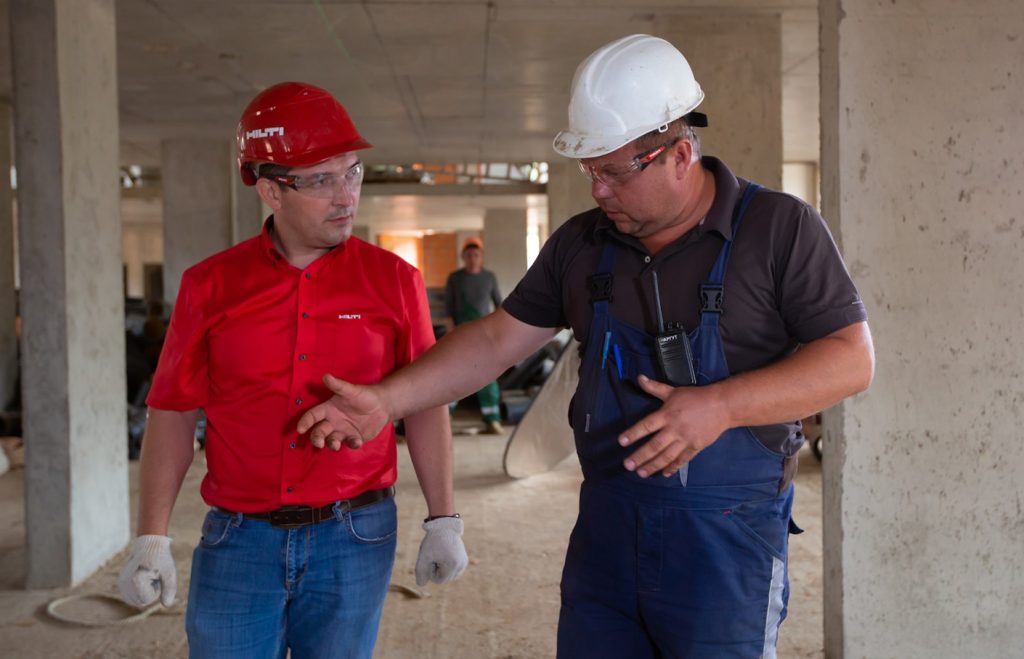
Introduction
The construction industry is the backbone of any thriving economy, shaping skylines, and providing essential infrastructure for society. In the United Kingdom, the demand for skilled construction workers has never been more critical, as the country undergoes significant urban development, infrastructure expansion, and a surge in housing demands. To meet these challenges and maintain sustainable growth, there is an urgent need to prioritise construction training programs that will equip workers with the necessary skills and knowledge to succeed in this dynamic sector.
Driving Economic Growth
The construction industry plays a crucial role in driving economic growth. Investment in infrastructure projects not only improves transportation and communication networks but also attracts foreign investment and stimulates economic activity. At the current time there is an argument that the UK needs to invest in ambitious construction projects that will reinvigorate the economy. However, without a skilled and well-trained workforce, the potential gains of this may remain unrealised.
Bridging the Skills Gap
One of the most pressing challenges facing the construction industry in the UK is the widening skills gap. As seasoned workers retire and projects become more complex, there is a shortage of skilled labor to fill the void. The lack of qualified workers is slowing down projects, raising construction costs, and affecting the overall productivity of the sector.
Investing in construction training programs will enable both newcomers and experienced workers to upskill, providing them with the knowledge and competencies required to tackle modern construction challenges. Addressing the skills gap will not only benefit the industry but also offer rewarding career opportunities for individuals seeking stable and well-paying jobs.
Embracing Technological Advancements
The construction industry is rapidly evolving with the advent of innovative technologies such as Building Information Modeling (BIM), automation, and green building practices. To stay competitive and deliver high-quality projects, construction workers need to be proficient in these emerging technologies.
Construction training programs can familiarise workers with the latest tools and methodologies, allowing them to adapt to a changing work environment. Embracing technology not only improves project efficiency but also reduces waste and environmental impact, aligning the industry with the UK’s commitment to sustainability and carbon neutrality.
Ensuring Safety and Quality Standards
Safety is a paramount concern in the construction industry. Accidents at construction sites can be catastrophic, leading to injuries, loss of life, and significant financial liabilities. A well-trained workforce is better equipped to adhere to safety protocols, minimising the risk of accidents and promoting a culture of safety on construction sites.
Additionally, trained workers are more likely to deliver high-quality workmanship, ensuring that construction projects stand the test of time. Inadequate training can lead to costly mistakes and rework, causing delays and escalating costs for both contractors and clients.
Cultivating Specialised Skills
The construction sector encompasses a wide array of specialties, each requiring distinct skill sets. From masonry, carpentry, and electrical work to plumbing, roofing, and HVAC installation, each trade plays a vital role in the construction process. By receiving specialised training, individuals can develop expertise in their chosen field, contributing to the successful execution of construction projects. With no end likely to the UK’s need for more housing, those who are complete construction related training such as bricklaying or plastering training courses, for example, are likely to be assured of a continued demand for their services for many years to come.
Meeting Housing Demands
The UK is facing a housing crisis, with a shortage of affordable homes affecting millions of citizens. Addressing this challenge requires a surge in construction projects that can deliver high-quality, energy-efficient housing at scale.
Construction training programs geared towards housing development will empower workers to construct homes efficiently while adhering to environmental standards and building regulations. By investing in these programs, the UK can make significant strides towards resolving its housing crisis.
Conclusion
The demand for construction workers and construction training in the UK has never been more urgent. From driving economic growth and bridging the skills gap to embracing technology and meeting housing demands, a skilled and well-trained construction workforce is essential for the country’s prosperity.
To secure a prosperous future, the UK must invest in robust construction training programs that empower workers with the expertise needed to succeed in this ever-evolving industry. By doing so, the country can build a brighter future for both its citizens and the UK economy.









